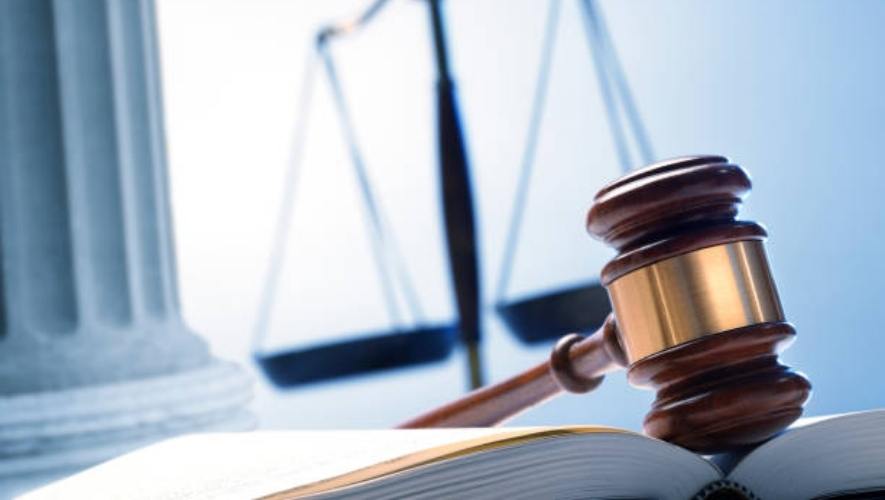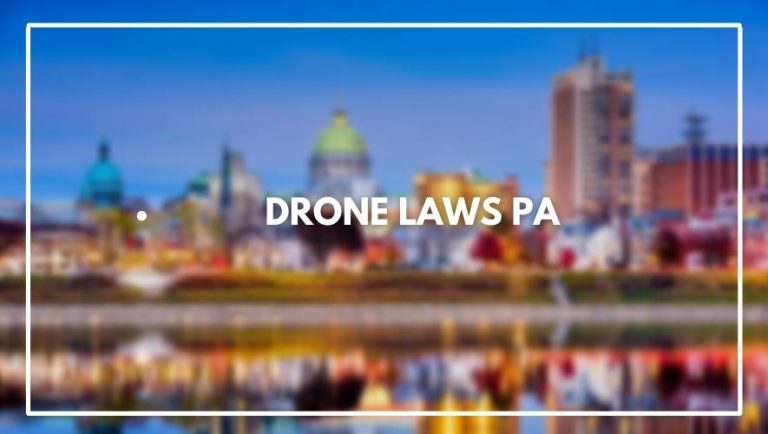In this article we take a look at drone laws in Fiji, where you are able to fly, what you can or cannot carry with or on your drone, and the penalties for not following the rules.
Drone Laws Fiji

Want to fly a drone in Fiji? You’ll need to follow the rules.
Drone laws are different from country to country and Fiji has specific rules and regulations for flying drones, which we’ve outlined below.
Fiji’s drone laws are generally pretty strict. The government’s official guidelines state that you do need prior permission from the Civil Aviation Authority of Fiji before being allowed to fly your drone in Fiji.
Type Of Flying Allowed
If you are flying your drone for commercial purposes, it is mandatory to have a permit before you fly. In addition, your drone must be registered with the Civil Aviation Authority of Fiji and operated within the guidelines set out in the Civil Aviation Rules.
If you are flying for recreational purposes and intend to use your footage for any form of marketing or promotion, then this also classifies as commercial work. Since drones have become more accessible and affordable over recent years, more people are using them on holiday to create content and share their experiences on social media.
Registration Process
Drone registration can be done online. The form can be found on the Fijian Civil Aviation Authority’s website here (make sure to use Google Translate to translate this page if you don’t speak Fijian). You will need to provide your personal information, drone details, and payment details. Specifically, the following pieces of information are required.
- Your name
- Your address
- Airline and flight number (if applicable)
- The make and model of your drone(s)
- Receipts for each drone you bought in Fiji
Insurance Requirements
If you’re flying your drone commercially, it’s mandatory to have public liability insurance. This will cover you if your drone causes bodily injury or property damage to third parties.
If you are found to be flying a commercial drone without the required insurance, then you may be in violation of the law and could face fines or even jail time.
It is highly recommended that recreational flyers also get insurance in case they cause any accidental damage while flying their drones. If you are found to be causing damage while operating a recreational drone, then the onus may fall on yourself or your insurer to pay for any damages caused by your actions.
You can get insurance from some of the major drone manufacturers out there like DJI and Yuneec when purchasing a new drone. You can also purchase additional stand-alone policies from companies like DroneInsuranceHQ, Skywatch Insurance Services LLC, Verifly Insurance Services Inc., and Global Aerospace Underwriting Managers Ltd.
Drone Size Limits
Though drone laws in Fiji have no maximum weight specification, they do have a size limit: your drone cannot be larger than 7 kg.
There is no reason to go around flying extra-large drones; if you need a super-large drone to get the job done, you’re probably better off hiring someone with an aircraft license and their small army of personal assistants anyway.
Just like anywhere else in the world, you must keep your drone within your sight at all times while flying. While there isn’t a specific distance mentioned by law, we recommend staying under 300 meters from yourself (more or less).
Drone Weight Limits
Most drones are allowed in Fiji, as long as they weigh less than 2kg. If your drone weighs more than 2kg, you will need to apply for a permit. You will also need to apply for a permit if you are flying for commercial reasons (e.g. making money), or if you are flying within 5km of an airport.
Locations You Can Fly
You can’t fly your drone over groups of people. Make sure you don’t fly your drone within 25 meters (82 feet) of anyone. The only exception is when there are safety barriers between you and the people or if you have permission from everyone in the group. ‘
You also need to stay at least 150 meters away from buildings, structures, and vehicles that aren’t yours. If a structure is considered a public space, like a building or center, you can’t fly within 50 meters (164 feet) of it without permission from the owner.
Locations You Cannot Fly
- You cannot fly in restricted areas, such as national parks or military bases.
- You cannot fly over people, unless they are involved in your flight (e.g., participating in a film shoot).
- You cannot fly within 30 meters of people, boats or buildings if you’re not participating in the flight.
- Drone flights are prohibited within national parks except for research and conservation purposes. Specific permission is required from Fiji’s Ministry of Environment for any drone flights within national parks and may come with additional requirements.
- You cannot fly over roads without specific permission from Fiji’s Ministry of Infrastructure and Transport.
How To Register Drones In Fiji

Write A Letter To Fiji’s Civil Aviation Authority.
Fiji’s Civil Aviation Authority (CAA) must approve all commercial drone usage in Fiji. To request approval, you should write a letter to the CAA explaining what commercial purpose your drone will serve. This letter should be written in English, and it needs to include the following items:
- A copy of your passport
- A copy of your drone’s registration certificate
- A copy of your drone’s insurance certificate
- A copy of your pilot’s license.
Include Information About The Drone’s Weight, Payload, Make And Model
The following information is required to register your drone:
- Weight of the drone (in pounds)
- Payload of the drone (in pounds)
- Make and model of the drone
- How you intend to use the drone (commercial or recreational)
Include Your Name And Contact Information.
In the letter, include:
- Your full name and contact information — address, phone number, email address, main social media account (if applicable), website (if applicable)
- Your travel dates
It Will Take Some Time For The Civil Aviation Authority To Approve
After submitting the form, it will take about a week for the Civil Aviation Authority to get back to you with your approved registration number. In addition to registering in advance, it’s important to carry your registration documentation on you at all times while using your drone in Fiji. If you’re found flying without this documentation, your drone may be seized and/or destroyed.
You Should Register Your Drone In Advance Of Using It
You Should Register Your Drone In Advance Of Using It in Fiji. Depending on the class of your drone, you may need to make several copies of each of these documents and submit them in person to the Civil Aviation Authority:
- A completed registration form detailing specific information about yourself, your experience using drones, and the purpose for which you intend to use it.
- A recent passport-style photo that is a clear representation of yourself. This will be printed directly onto your registration certificate upon approval.
- Proof that you are 18 years or older. Any form of government-issued identification will suffice (driver’s license or passport).
- Official documentation with the serial number and specifications of your drone. You must provide this information in English or French, as well as include a picture, sketch, or diagram so that officials can clearly identify each part/component.
Are Drones Allowed In Fiji
What Can You Expect In Fiji?
- Weather: Fiji is a tropical island, so expect temperatures to be warm year-round with highs ranging from 80-90 degrees Fahrenheit (26 to 32 degrees Celsius). The dry season lasts between May and November, while the wet season occurs between December and April—though a good amount of rain is possible at any time of year.
- Landscape: Fiji is made up of 333 islands (about 100 inhabited) and 500 small islets; it’s truly a place of stunning natural beauty. You’ll find lush forests and jungle, waterfalls, coral reefs, white sand beaches, vibrant marine life, dramatic caves and gorges—and that’s just on land! The terrain ranges from high mountains to low atolls surrounded by the sparkling ocean waters (which are also teeming with living things).
- Local people: Friendly locals are accustomed to tourists visiting their beautiful country for holidays or even expatriating there as permanent residents. As such, you can expect them to be welcoming to foreigners who uphold social norms in Fiji.
- For example: point with an open hand rather than your index finger; if invited into a home or village meeting room, remove your shoes; ask before taking someone’s picture; respectful dressing standards apply; do not touch anyone’s head as this would be interpreted as disrespectful due to its proximity to the brain; address elders by their first name followed by “mai” (pronounced my) which means “uncle,” or “kuru” (pronounced koo-roo) which means “aunt.”
Can You Fly A Drone In Fiji?
Whether or not you can fly a drone in Fiji is certainly something you’ll want to know before flying there. As a tourist, it’s your responsibility to understand the rules and regulations of the country you’re in. To help you avoid trouble and inspire your drone journey, Skytango has put together this guide on drone laws in Fiji.
Fiji has a national Drone Policy available online. Here are some things to remember:
- You must register your drone with the Civil Aviation Authority of Fiji (CAA), including submitting photos and proof of insurance.
- Your drone must weigh less than 20kg/44lb max take-off weight.
- You must be at least 18 years old to fly a drone for commercial purposes over 12kg/26lb takeoff weight, or 16 years old for recreational use.
- You must obtain permission from landowners prior to flying over private property.
- If your purpose involves people under 18 years old, you need written permission from the subject’s parent / legal guardian prior to flight operations or publishing images/videos taken from flight operations where identifiable individuals are present in the imagery/video footage captured by drones (including aerial photography). This also applies if there is an identifiable individual within 50 meter radius of where the UAV will be operated / launched from / recovered to regardless of whether that person consents to being photographed or filmed (including aerial photography).
How To Fly Your Drone Safely In Fiji
Fiji is a fascinating place for drone enthusiasts, but it’s important to check the local regulations before you take flight. To take off and land safely, you’ll need to follow some basic safety guidelines:
- Make sure your drone is in good condition—a clean and functional aircraft with no damage.
- Know how to fly it—this means reading the user manual thoroughly, practicing on open ground close to your home or at least in a controlled indoor environment, and keeping your piloting skills sharp by watching online tutorials and other advice online.
- Check the weather—you’ll want clear skies so that you can get some great aerial shots, but you’ll also want to avoid flying during high winds or when there are thunderstorms in the area.
- Plan your route—here’s where most pilots run into trouble, since most drones have limited range and are unable to fly above 1,500 feet (457 meters). This means that if there are restricted areas near airports like Nausori Military Base or Port Denison Naval Base that limit drone-flying approaches or landing attempts (for example), then you need to be sure you’re aware of any potential restrictions before you go out flying.
Flying Drones Around Local People
Your drone must maintain a distance of at least 30 metres away from any and all local people, as well as property owned by local people.
Flying over private land.
Drones are not permitted to fly over private property without the permission of the land owner or occupant. This includes landing your drone on the property without permission.
Flying Drones On Your Holiday
When flying your drone, make sure you get permission from the relevant authorities first. This is especially important if you plan to fly above private property or in a national park.
Always fly your drone in an open area away from other people and buildings, and be aware of how close it is to people and buildings at all times.
Make sure the battery on your drone has a good level of power before every flight. If you have spare batteries, take them with you.
Don’t carry anything on your drone that is too heavy for it to carry safely.
What Else Do You Need To Know About Flying Drones In Fiji?
Flying drones in Fiji is a great way to see the country from a different perspective. Make sure to follow the rules and respect local people and their privacy when flying drones in Fiji. You can get great footage of Fiji from a drone and have some fun, as long as you fly responsibly.
Before you fly your drone, it’s important to check the weather conditions. High winds, heavy rains, and fog can all affect your ability to safely pilot your drone. Also make sure that you’re not flying near any commercial airports or air traffic areas, like national parks or resorts – these are restricted zones that are off limits for drones.
Conclusion
The Fiji government is making headway on passing a drone regulation policy through the House of Parliament. An Act to Regulate Unmanned Aircraft Systems in FFI was tabled at Parliament recently and as there is no regulatory framework currently in place, this will be a huge win for the country of Fiji.
Frequently Asked Questions (drone Laws Fiji)
What Are The Regulations In Fiji?
In the interest of safety and security, drones must be registered with the Civil Aviation Authority. You will need to have a pilot’s license and drone license before taking to the skies in Fiji.
You can only fly your drone:
- in daylight hours;
- no more than 400 feet above ground level;
- within your line of sight; and
- within an operator’s distance that is controlled by radio or optical signals.
If you wish to use your drone for commercial purposes or film any kind of footage (including aerial shots), then you will need additional insurance coverage from a licensed provider such as Aspen Insurance Brokers Limited (Fiji).
How Do You Get A Drone To And Through Fiji?
You can fly your drone to Fiji, and you can bring it back. You’ll just need a copy of your drone’s registration and proof that you’ve taken the necessary steps to comply with all applicable laws. If you’re flying internationally or across state lines, be sure to check for any restrictions before leaving home.
If you don’t have time to register your drone with the FAA, we recommend hiring one in Fiji! There are many local drones available for rent in Fiji—just search online or ask around at your hotel concierge desk.
Do You Need Travel Insurance?
- Yes. We strongly recommend that you have travel insurance. Your travel insurance can cover medical expenses, lost luggage and personal belongings, cancellation of flights and other travel plans, or even if your flight is delayed or cancelled.
- No. Travel insurance is not required to enter Fiji but we highly recommend purchasing it before traveling as you will be responsible for any costs associated with medical treatment while in the country if you do not have coverage.*

![Hawaii Drone Laws [Updated: March 2023] Must Read!](https://discoveryoftech.com/wp-content/uploads/2022/08/drones-88-768x434.jpg)
![Drone Laws Trinidad [March 2023] [Rules & How to Register]](https://discoveryoftech.com/wp-content/uploads/2022/08/Drone-Laws-14-768x434.jpg)
![Drone laws New Zealand [March 2023] [Rules & How to Register]](https://discoveryoftech.com/wp-content/uploads/2022/05/drone-67-768x434.jpg)

![Drone Laws Russia [March 2023] [Rules & How to Register]](https://discoveryoftech.com/wp-content/uploads/2022/08/drone-17-768x434.jpg)